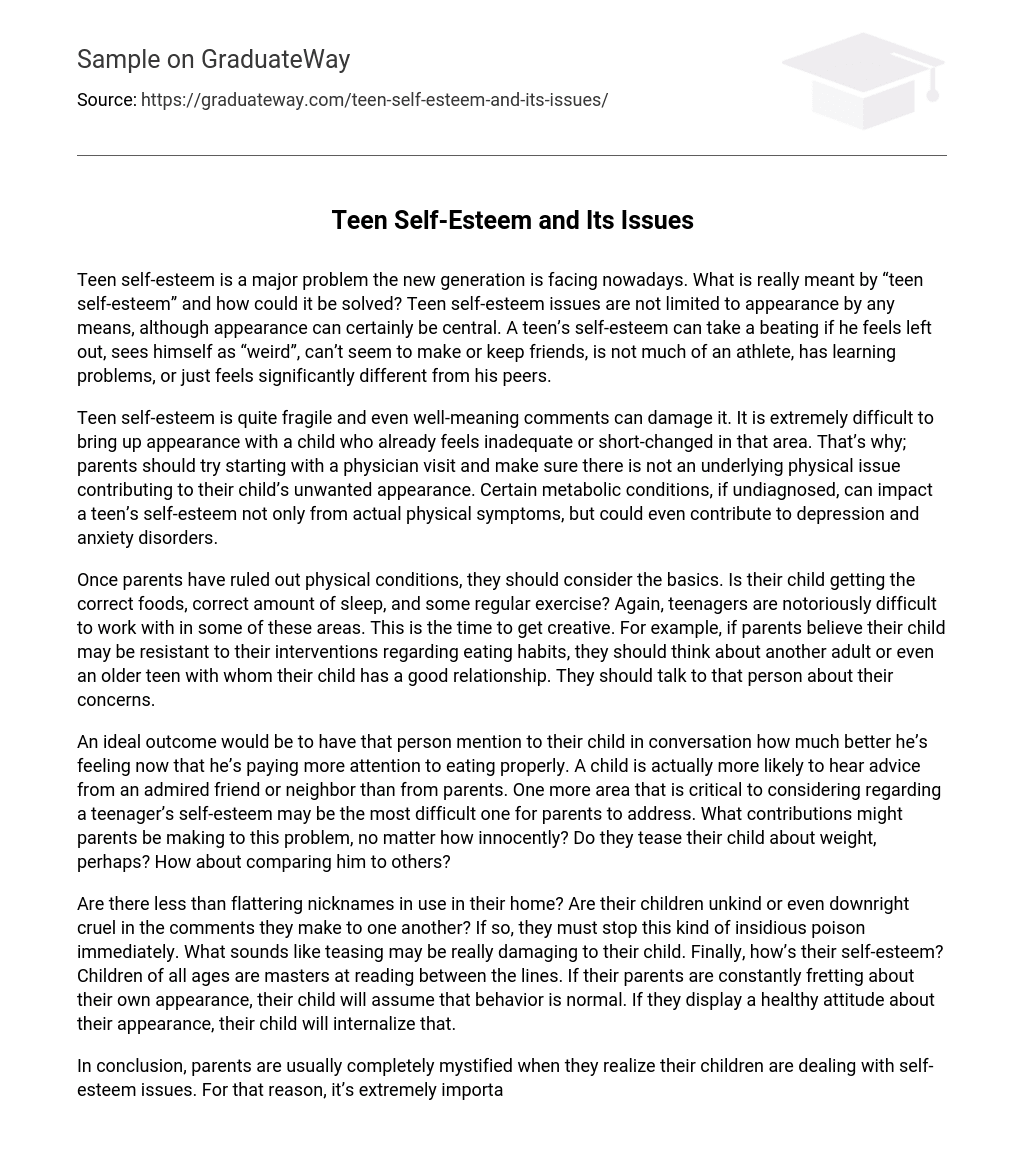Teen self-esteem is a major problem the new generation is facing nowadays. What is really meant by “teen self-esteem” and how could it be solved? Teen self-esteem issues are not limited to appearance by any means, although appearance can certainly be central. A teen’s self-esteem can take a beating if he feels left out, sees himself as “weird”, can’t seem to make or keep friends, is not much of an athlete, has learning problems, or just feels significantly different from his peers.
Teen self-esteem is quite fragile and even well-meaning comments can damage it. It is extremely difficult to bring up appearance with a child who already feels inadequate or short-changed in that area. That’s why; parents should try starting with a physician visit and make sure there is not an underlying physical issue contributing to their child’s unwanted appearance. Certain metabolic conditions, if undiagnosed, can impact a teen’s self-esteem not only from actual physical symptoms, but could even contribute to depression and anxiety disorders.
Once parents have ruled out physical conditions, they should consider the basics. Is their child getting the correct foods, correct amount of sleep, and some regular exercise? Again, teenagers are notoriously difficult to work with in some of these areas. This is the time to get creative. For example, if parents believe their child may be resistant to their interventions regarding eating habits, they should think about another adult or even an older teen with whom their child has a good relationship. They should talk to that person about their concerns.
An ideal outcome would be to have that person mention to their child in conversation how much better he’s feeling now that he’s paying more attention to eating properly. A child is actually more likely to hear advice from an admired friend or neighbor than from parents. One more area that is critical to considering regarding a teenager’s self-esteem may be the most difficult one for parents to address. What contributions might parents be making to this problem, no matter how innocently? Do they tease their child about weight, perhaps? How about comparing him to others?
Are there less than flattering nicknames in use in their home? Are their children unkind or even downright cruel in the comments they make to one another? If so, they must stop this kind of insidious poison immediately. What sounds like teasing may be really damaging to their child. Finally, how’s their self-esteem? Children of all ages are masters at reading between the lines. If their parents are constantly fretting about their own appearance, their child will assume that behavior is normal. If they display a healthy attitude about their appearance, their child will internalize that.
In conclusion, parents are usually completely mystified when they realize their children are dealing with self-esteem issues. For that reason, it’s extremely important that parents spend some time looking carefully at the environments in which their children spend most of their time. In particular, home and school settings should be safe and supportive places for each child. If parents suspect that they are not, they should make it their own business to make whatever changes are necessary to provide their child the environment he needs to be a healthy, productive, and confident person.





